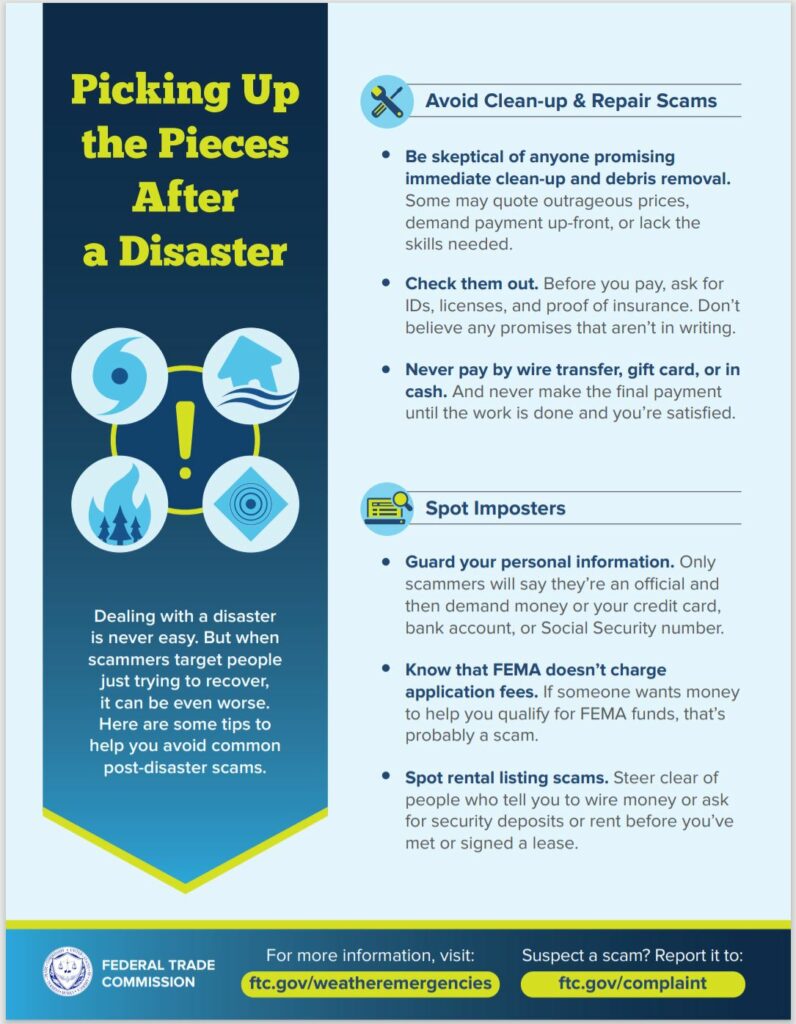Whether you’re getting ready to deal with the aftermath of Gulf Coast storms, Laura and Marco, dealing with the ravages of wildfires out West, reeling from the derecho that struck the Midwest, or facing another natural disaster, handling the aftermath is never easy. But when scammers target people just trying to recover, it can be even worse. Here are some tips to help you avoid common post-disaster scams.
- Be skeptical of anyone promising immediate clean-up and debris removal. Some may quote outrageous prices, demand payment up-front, or lack the skills needed.
- Check them out. Before you pay, ask for IDs, licenses, and proof of insurance. Don’t believe any promises that aren’t in writing.
- Never pay by wire transfer, gift card, or in cash. And never make the final payment until the work is done and you’re satisfied.
- Guard your personal information. Only scammers will say they’re an official and then demand money or your credit card, bank account, or Social Security number.
- Know that FEMA doesn’t charge application fees. If someone wants money to help you qualify for FEMA funds, that’s probably a scam.
- Be wise to rental listing scams. Steer clear of people who tell you to wire money or ask for security deposits or rent before you’ve met or signed a lease.
- Spot disaster-related charity scams. Scammers will often try to make a quick profit from the misfortune of others. Check out the FTC’s advice on donating wisely and avoiding charity scams.
Check out this infographic, Picking Up the Pieces after a Disaster (click the link to download your own copy):

Share this infographic and this social media image in your community to help raise awareness. You can also bookmark Dealing with Weather Emergencies. All FTC materials are mobile-friendly, so you’ll have ready access to information when and where you need it.
Suspect a scam? Report it to the FTC at ftc.gov/complaint. Want information on the latest frauds and scams the FTC is seeing? Sign up for our consumer alerts.
Guest blogger: Colleen Tressler, Consumer Education Specialist, FTC


